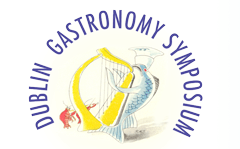Start Date
28-5-2024 11:00 AM
End Date
28-5-2024 11:15 AM
Description
Cookery books that claim to provide national recipes, as well as anthropological accounts of national cuisines, tend to promote particular ideologies. This paper examines a sample of Latin American cookery books with two such ideologies in mind: domesticity, with the woman firmly located in the home, and nationalism with appeals to the marvellous cuisine of the relevant nation. The books often see women as being fully responsible for food preparation and providing a well-run and comfortable home for the family. They are frequently also dedicated to the author’s mother or grandmother. José Sánchez-H’s My Mother’s Bolivian Kitchen highlights women as the bearers of culinary tradition placing them in the “backward look” of the Janus-face of nationalism. As part of the nationalist process of incorporating different ethnicities, cuisines of different regions may be included. Sonia Montecino Aguirre’s Cocinas Mestizas de Chile: La Olla Deleitosa, is focussed on national inclusivity by including the mixture of pre-Colombian and Spanish foodways which contribute to a Chilean Creole national cuisine. National cookery books tend to promote the nation’s cuisines in various ways including a focus on traditional national dishes, such as the Paraguayan chipa or the Colombian arepa. Such mentions of national dishes can also be seen, as Michael Billig has argued, as purveyors of “banal nationalism,” a quiet, everyday reminding of nationhood.
Creative Commons License

This work is licensed under a Creative Commons Attribution-NonCommercial-Share Alike 4.0 International License.
DOI
https://doi.org/10.21427/b9p5-wm57
“My Mother’s Bolivian Kitchen”: Latin American Cookery Books, Tradition and Ideology
Cookery books that claim to provide national recipes, as well as anthropological accounts of national cuisines, tend to promote particular ideologies. This paper examines a sample of Latin American cookery books with two such ideologies in mind: domesticity, with the woman firmly located in the home, and nationalism with appeals to the marvellous cuisine of the relevant nation. The books often see women as being fully responsible for food preparation and providing a well-run and comfortable home for the family. They are frequently also dedicated to the author’s mother or grandmother. José Sánchez-H’s My Mother’s Bolivian Kitchen highlights women as the bearers of culinary tradition placing them in the “backward look” of the Janus-face of nationalism. As part of the nationalist process of incorporating different ethnicities, cuisines of different regions may be included. Sonia Montecino Aguirre’s Cocinas Mestizas de Chile: La Olla Deleitosa, is focussed on national inclusivity by including the mixture of pre-Colombian and Spanish foodways which contribute to a Chilean Creole national cuisine. National cookery books tend to promote the nation’s cuisines in various ways including a focus on traditional national dishes, such as the Paraguayan chipa or the Colombian arepa. Such mentions of national dishes can also be seen, as Michael Billig has argued, as purveyors of “banal nationalism,” a quiet, everyday reminding of nationhood.
